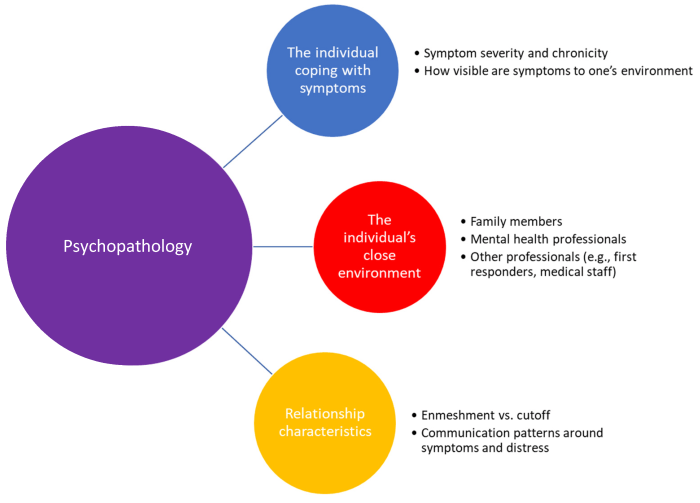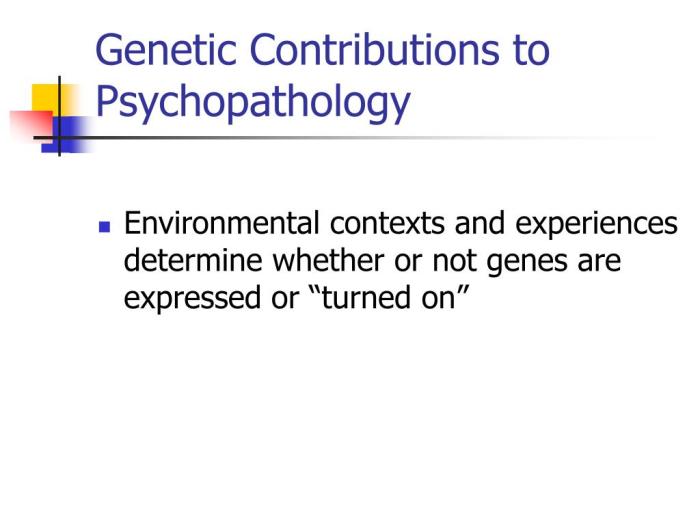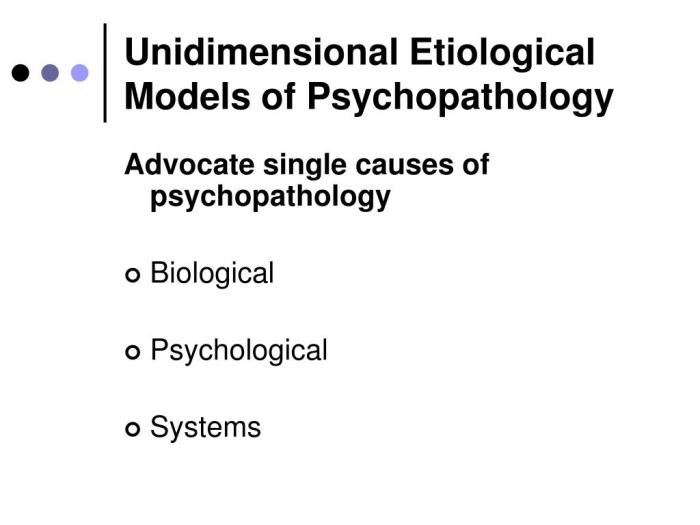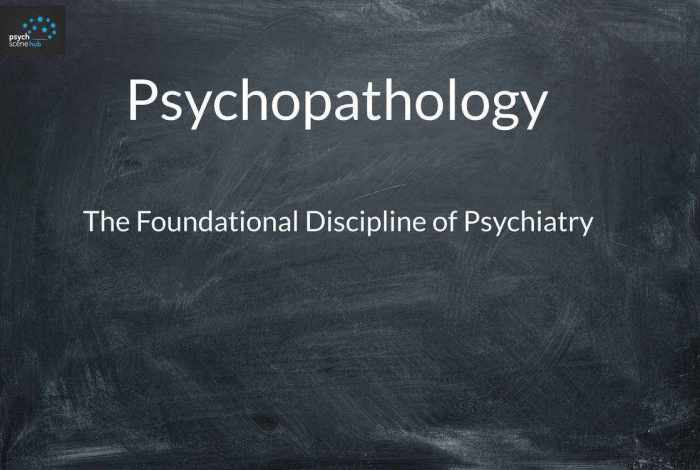Psychopathology an integrative approach to mental disorders 9th edition pdf – Psychopathology: An Integrative Approach to Mental Disorders, 9th Edition PDF, offers a comprehensive exploration of the field of psychopathology, providing an in-depth examination of the biological, psychological, and social factors that contribute to mental disorders. This authoritative text delves into the historical evolution of psychopathology, the various approaches to understanding mental illness, and the challenges and future directions of an integrative approach.
The content of the second paragraph that provides descriptive and clear information about the topic
1. Introduction

Psychopathology is the scientific study of mental disorders. It seeks to understand the causes, symptoms, and treatment of mental illness. The scope of psychopathology includes a wide range of disorders, from anxiety and depression to schizophrenia and bipolar disorder.
The historical evolution of psychopathology can be traced back to the ancient Greeks, who believed that mental illness was caused by an imbalance of bodily fluids. In the Middle Ages, mental illness was often attributed to demonic possession or witchcraft.
It was not until the 19th century that psychopathology began to emerge as a scientific discipline, with the work of Emil Kraepelin and Sigmund Freud.
There are a variety of different approaches to psychopathology, including biological, psychological, and social perspectives. Biological perspectives focus on the role of genetics, neurotransmitters, and brain imaging in mental illness. Psychological perspectives focus on the role of learning, cognition, and personality in mental illness.
Social perspectives focus on the role of family, culture, and social support in mental illness.
2. Biological Perspectives: Psychopathology An Integrative Approach To Mental Disorders 9th Edition Pdf
Genetics
Genetics play a significant role in the development of many mental disorders. Studies have shown that people with a family history of mental illness are more likely to develop a mental disorder themselves. However, it is important to note that genetics are not the only factor that contributes to the development of mental illness.
Environmental factors, such as stress and trauma, can also play a role.
Neurotransmitters
Neurotransmitters are chemicals that allow neurons to communicate with each other. Imbalances in neurotransmitters, such as serotonin and dopamine, have been linked to a variety of mental disorders, including depression, anxiety, and schizophrenia.
Brain Imaging, Psychopathology an integrative approach to mental disorders 9th edition pdf
Brain imaging techniques, such as MRI and PET scans, can be used to visualize the brain and identify abnormalities that may be associated with mental illness. Brain imaging studies have shown that people with mental disorders often have differences in brain structure and function compared to people without mental disorders.
3. Psychological Perspectives

Learning
Learning plays a significant role in the development and maintenance of many mental disorders. People who have learned to fear certain objects or situations may develop anxiety disorders. People who have learned to think negative thoughts about themselves may develop depression.
Cognition
Cognition refers to the mental processes involved in thinking, perceiving, and remembering. People with mental disorders often have difficulty with cognition, which can lead to problems with problem-solving, decision-making, and social interaction.
Personality
Personality refers to the enduring patterns of thoughts, feelings, and behaviors that make each person unique. Certain personality traits, such as neuroticism and extraversion, have been linked to an increased risk of developing mental disorders.
4. Social Perspectives

Family
Family relationships can play a significant role in the development of mental disorders. Children who grow up in families with high levels of conflict or abuse are more likely to develop mental disorders than children who grow up in families with healthy relationships.
Culture
Culture can influence the way that mental disorders are perceived and treated. In some cultures, mental illness is seen as a sign of weakness or shame, while in other cultures it is seen as a normal part of life.
Social Support
Social support can be a protective factor against the development of mental disorders. People who have strong social support networks are more likely to cope with stress and adversity without developing mental illness.
5. Integrative Approach

Advantages
An integrative approach to psychopathology combines the strengths of different perspectives to provide a more comprehensive understanding of mental disorders. Integrative approaches can help to identify the multiple factors that contribute to the development and maintenance of mental illness, and can lead to more effective treatment.
Challenges
An integrative approach to psychopathology can be challenging, as it requires researchers and clinicians to be familiar with a variety of different perspectives. It can also be difficult to integrate the findings from different perspectives into a coherent framework.
Future
The future of psychopathology is likely to be integrative, as researchers and clinicians continue to recognize the importance of considering the multiple factors that contribute to mental disorders.
Helpful Answers
What is the scope of psychopathology?
Psychopathology encompasses the study of the origins, development, and manifestations of mental disorders, including their diagnosis, assessment, and treatment.
How does the integrative approach contribute to the understanding of mental disorders?
The integrative approach combines biological, psychological, and social perspectives to provide a comprehensive understanding of the complex interplay of factors that contribute to mental disorders.
What are the challenges of assessing and diagnosing psychopathology?
Challenges include the subjectivity of symptoms, the presence of comorbidity, and the limitations of diagnostic criteria.